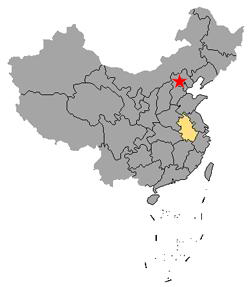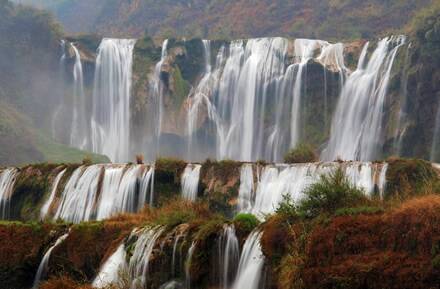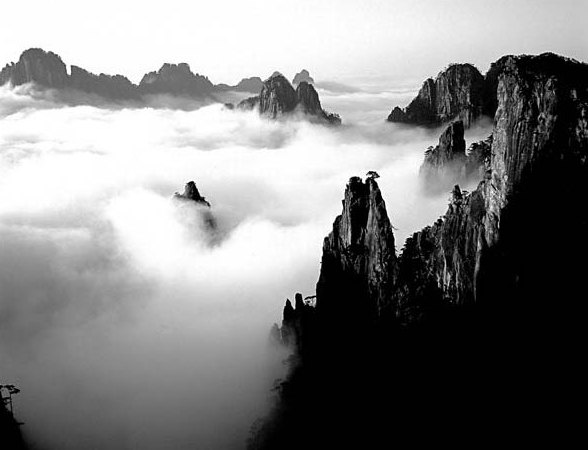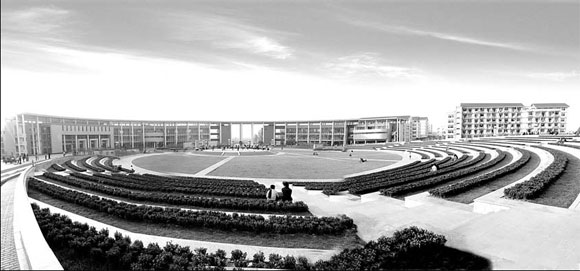|
Location
Neighboring Jiangsu, Zhejiang, Henan, Hubei, Jiangxi and Shandong, Anhui is an important province that links China's central and eastern regions. Anhui and its six neighboring provinces contribute nearly 40 percent of China's gross domestic product and have a combined population of nearly 500 million.
 |
| The map indicats Anhui's location in China. |
Resources
Land
Anhui has 5.73 million hectares of farmland suitable for growing a wide range of crops.
Water
Total average annual water volume in Anhui's rivers and lakes reached 71.6 billion cu m in recent years. The province has a well-developed irrigation system and flood control projects.
 |
| Huangshan Jiulong ("nine dragon" in English) Waterfall |
Flora and fauna
The province has 3.6 million hectares of forests with a large variety of animals and plants, including 300 types of woody plants, over 2,100 kinds of herbs and more than 500 species of animals. It has 91 rare animal species including the Chinese alligator and white fin globefish.
Minerals
Anhui has 138 kinds of minerals that have been discovered to date, 111 of which have been explored and mined. Its reserves in 12 minerals rank among the top 10 in the nation, including coal, iron, copper, sulfur and limestone.
Tourism
Huangshan Mountain and ancient villages in Xidi and Hongcun in Yixian county are on the UNESCO's World Heritage List. The mountain is also a world geological park.
 |
|
Huangshan Mountain, a UNESCO world cultural and natural heritage site and world geological park, is the most famous tourist attraction in Anhui.
|
Technology and education
Anhui province has a sound foundation in science and technology. Its capital Hefei is an important center for scientific and technological research in China. There were 1.24 million technicians and engineers in the province in 2007.
 |
|
New campus of Anhui University. With 97 universities and 158 research institutes, Anhui has a sound foundation for scientific and technological research.
|
|